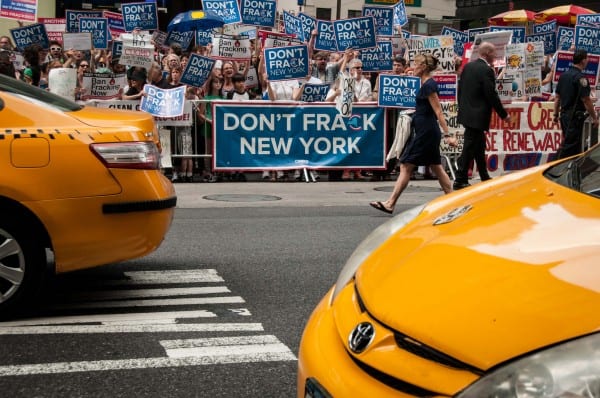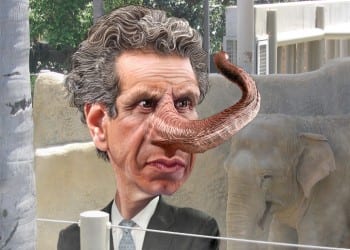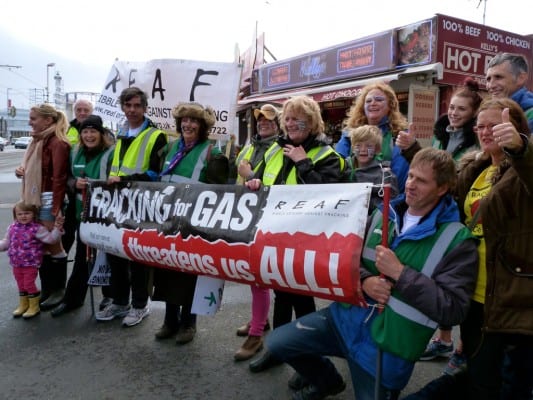The fracking struggle: a distorted reflection of America’s decomposing democracy
[dropcap]M[/dropcap]ore and more, from the Presidential level to the state house and community levels. and regions across America, the latest Pied Piper of the Oil industry, hydraulic fracking, is showing the alarming informational and political deficits and fractures afflicting the American population.
On the one side we find, as usual, the industry people and their whores in Congress, governorships, and state assemblies, not to mention the well-stocked gallery of media shills, always ready to lie for their patrons. Their self-serving statements are enthusiastically received by a significant number of desperate and near-desperate Americans dazed by the Republican noise machine, and accustomed to short-term thinking. This lot, almost by birthright, remain exceedingly vulnerable to the siren call of quick riches.
On the other side we also find the usual crowd: the better informed and more principled individuals, many activists in the environmental and political spheres who see without much effort that fracking is at best a Faustian pact, a choice recklessly dangerous to an already wounded global ecology. This sector of the population—despised by the GOP legions and frequently betrayed by the Democrats— realizes that further investment in hydrocarbons is not only politically corrupt and foolhardy but irrefutably suicidal. It matters, too, that the deliberate destruction of the climate also constitutes mass murder at one remove for countless animal species with whom we share this fragile planet.
In the stories below, these issues are brought to the fore in specific circumstances. In Texas, a state long known for its arrogantly repugnant social, political and moral culture, the prostituted legislators are pushing to deprive towns and cities of their right to legislate bans on fracking. This is the same crowd who shout the loudest about the “inalienable freedom of all Americans” to set any course they like in their lives, and who vote unanimously for America’s lethal interventions abroad to protect and supposedly extend such precious freedoms. But, alas, in the manner of all professional harlots and hypocrites, when it suits their paymasters, contradictions of such dimensions suddenly vanish.
 Meanwhile in New York, where Gov. Andrew Cuomo (largely an opportunist Democratic politician with an eye on the White House), has surprisingly passed a momentary ban on fracking, there’s bold talk of secession in some quarters. The secessionists, you see, would like to share in what they perceive as the oil industry’s “fracking largesse”, apparently in evidence just over the border in Pennsylvania (yet another utterly corrupt state with its share of misguided souls and the unhappy accident of hosting much of the Marcellus Shale, coveted by the oil industry). As usual, in the case of these secessionists and their short-term thinking, they don’t care much what happens to others, let alone nature which they regard as God-given for man’s infinite usufruct, as long a they get theirs. This myopic but widely embraced selfish cultural attitude is these days further reinforced by the wholesale breakdown of American society, the total corruption, cynicism and hypocrisy that defines its political and media class (which allow for no real leadership except criminal misleadership), and the massive confusion and ignorance in which most Americans live their entire lives. Clueless is as clueless does. In other words, par for the course in the American republic, overrun by the toxic power of its coddled plutocrats.
Meanwhile in New York, where Gov. Andrew Cuomo (largely an opportunist Democratic politician with an eye on the White House), has surprisingly passed a momentary ban on fracking, there’s bold talk of secession in some quarters. The secessionists, you see, would like to share in what they perceive as the oil industry’s “fracking largesse”, apparently in evidence just over the border in Pennsylvania (yet another utterly corrupt state with its share of misguided souls and the unhappy accident of hosting much of the Marcellus Shale, coveted by the oil industry). As usual, in the case of these secessionists and their short-term thinking, they don’t care much what happens to others, let alone nature which they regard as God-given for man’s infinite usufruct, as long a they get theirs. This myopic but widely embraced selfish cultural attitude is these days further reinforced by the wholesale breakdown of American society, the total corruption, cynicism and hypocrisy that defines its political and media class (which allow for no real leadership except criminal misleadership), and the massive confusion and ignorance in which most Americans live their entire lives. Clueless is as clueless does. In other words, par for the course in the American republic, overrun by the toxic power of its coddled plutocrats.
[box] Patrice Greanville is The Greanville Post‘s editor in chief. [/box]
MEDIA ANNALS
In New York state, fracking ban fuels secession talk
.
It is a different story here on the New York side, where Gov. Andrew Cuomo in December declared a statewide ban on fracking — one of only two in the country — saying he was not convinced it is safe.
.
The national debate over fracking, which critics say can pollute groundwater and endanger public health, heated up last week when the Obama administration announced the first-ever federal regulations on the practice. But nowhere is fracking as heated an issue as in the stretch of New York known as the southern tier, where Cuomo’s ban has spurred talk of secession.
.
Political leaders like Price, Windsor’s town supervisor, say secession is not such a farfetched idea, and they are gathering feedback from constituents to see whether there is support for a breakaway movement.
.
“I think it really has to be looked at seriously,” said Price, who has watched her town of 6,200 wither as locals move away in search of jobs. “We only need to drive a few miles, and we can see ourselves.” She nods toward Pennsylvania, where once-depressed towns now boast bustling businesses catering to workers from companies like Chesapeake Energy, Houston-based Cabot Oil and Gas, and EOG Resources, which used to be part of Enron.
.
“The natural gas is the only thing that’s truly going to save this area,” Price said.
.
Windsor is one of about 15 towns in New York’s southern tier where secession is being eyed, if not as an attainable goal than as a radical proposal aimed at grabbing state lawmakers’ attention and forcing them to take notice of the region’s desperation.
.
For years, the state has vowed to create economic opportunities in the southern tier, once home to factories that produced everything from cigars to computers. For years, though, nothing has turned around a decline that is evident in the shuttered businesses and “for sale” signs dotting the rural landscape.Broome County, which includes Windsor, is the southern tier’s most populous county. Its biggest city and the county seat, Binghamton, had 80,000 residents in 1950. Today, it is home to 47,000 people. The fracking ban came on the same day that the state rejected the area’s bid for two casinos, exacerbating locals’ despair.The Marcellus Shale covers about 104,000 square miles, from New York south to parts of West Virginia and Ohio, and it is believed to be the largest source of natural gas in the United States. Energy companies have been drilling into it and other U.S. shale for decades. Only in recent years have technological advances enabled them to reach previously inaccessible deposits by blasting water, sand and chemicals into the earth to create new cracks.
The fracking brawl points to the fact that at its core, America remains a nation of deeply fragmented individuals and communities with little in the manner of a functioning commonwealth. The prevailing ethic, aggravated by corruption, is save qui peut—everyone for himself.

NYS Governor Andrew Cuomo is normally so much to the right that many think he’s a Republican. (DonkeyHotey, via flickr)
[dropcap]C[/dropcap]uomo’s ban came after years of study by the state’s Department of Health, which cited “critical information gaps” in potential hazards of fracking.
“I have asked myself, ‘Would I let my family live in a community with fracking?'” Howard Zucker, the department’s acting commissioner, said as he presented the results of a 184-page report to state lawmakers on Dec. 17. “The answer is no. I therefore cannot recommend anyone else’s family to live in such a community either.”
Cuomo cited the study when he announced the fracking ban. “I’m not going to put the health at risk for jobs,” he said. “I’m not going to make that choice. I’m not going to make it in the southern tier. I’m not going to make it anywhere in the state.”
Within days, Jim Finch, the town supervisor of Conklin, about 15 miles from Windsor, had begun mentioning secession as an option. At first, the idea was seen as a joke, but the distress among locals who had counted on natural gas to revive their communities was serious.
“The southern tier is desolate,” Finch told Binghamton’s WBNG-TV last month, even as he conceded that the chances of secession were remote. Still, state Sen. Thomas Libous, a Republican who represents the region, has been asking constituents their views on secession in an online survey.
The Upstate New York Towns Association, which represents southern tier communities and is headed by Price, plans to review results from Libous’ survey once they’re tabulated and decide what to do next. The organization was formed in July 2013 in response to what regional leaders say is the state’s tendency to make decisions that favor New York City and other so-called downstate areas.
Chief among those decisions has been the fracking ban, Price said. Local disappointment was sharpened by the knowledge that friends living a few miles away in Pennsylvania are thriving since energy companies began fracking there.
“It’s hard for them to accept that the line on the map makes such a huge difference,” said Price, adding that New York’s taxes, which are higher than Pennsylvania’s, add to residents’ ire.
The crowd at Kennedy’s Diner one recent lunch hour reflected the local frustration. As they devoured bowls of soup, heaping sandwiches and plates piled high with cheese-covered French fries, customers said they doubted anyone in the state capital would take seriously the secession threat. At the same time, they said they saw few economic options other than fracking, even if it carried some risk.
“My roots are here, but I see how people are struggling, and it’s just so depressing,” said Lisa Hayes, who hoped to lease 40 acres she owns to energy companies. Instead, she is moving to Florida in hopes of finding work as a medical assistant.
Her father-in-law, Donald Hayes, is a local tax preparer who has seen first-hand his neighbors’ financial struggles. “I tell people to get the heck out of here,” Hayes said.
He echoed others in the diner who said they believed the fracking ban was rooted more in politics than in safety concerns. Cuomo, a Democrat, has his eye on the White House and does not want to anger liberals, Hayes said.
At another table, farmers Bill and Lisa Titus said they had not seen evidence of fracking’s dangers to support the ban. It’s better to save local economies than leave them to die based on what might happen, they said.
Dan Burdick, a local businessman eating lunch with them, agreed. “Stuff happens,” Burdick said. “Be safe, but you’ve got to move forward. We need to find something to stand on our feet.”
(c) 2015 Los Angeles Times
Visit the Los Angeles Times at www.latimes.com
Distributed by Tribune Content Agency, LLC
Read more at http://www.arcamax.com/politics/politicalnews/s-1631942?fs#crBrpDj6O32FrOPO.99
Politics
Texas House panel votes to bar cities from banning fracking
AUSTIN — The Texas House Energy Resources Committee overwhelmingly approved a bill that would keep cities from regulating certain aspects of oil and gas, including adopting fracking bans.
Cities would be limited to enacting ordinances that regulate above-ground oil and gas activity, such as traffic, lights and noise. Cities could also adopt “reasonable” drilling setbacks. Regulatory power would otherwise reside with the state.
Under the bill, city ordinances would have to be “commercially reasonable,” allow oil and gas production, be in line with state and federal laws, and be related to above-ground activity.
New language in the bill spells out that ordinances that have been in effect for five years and that allow oil and gas production will be considered “commercially reasonable.”
The panel approved the bill 10-1. Rep. Rafael Anchia, D-Dallas, voted against the measure, and Rep. Gene Wu, D-Houston, voted present.
The bill stemmed from a fracking ban approved by Denton voters in November.
The bill now heads to the full House for consideration.
[printfriendly]
What is $1 a month to support one of the greatest publications on the Left?

